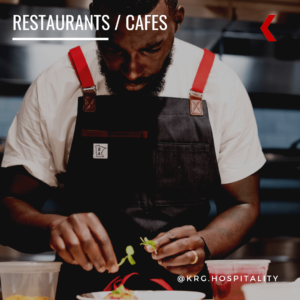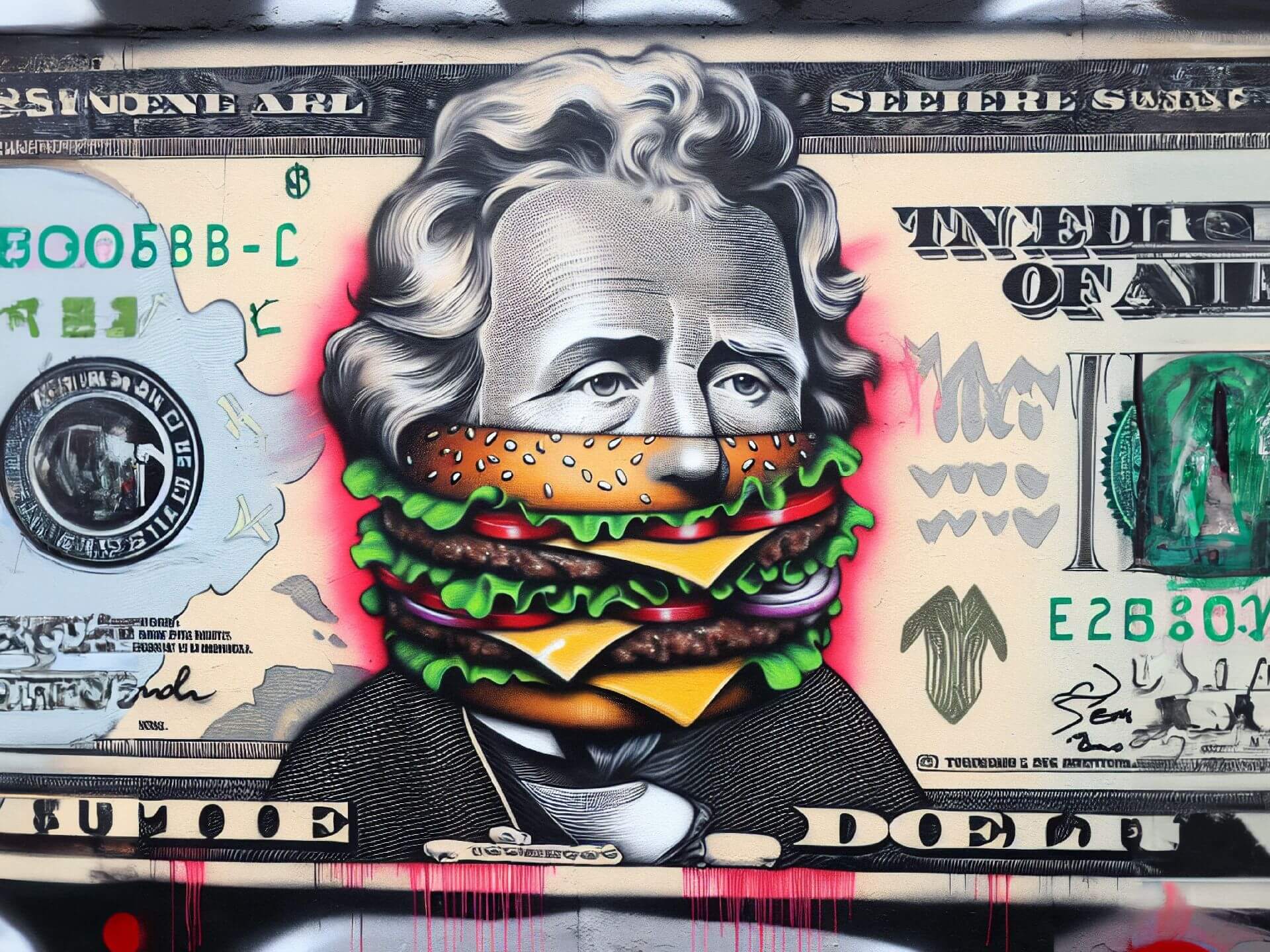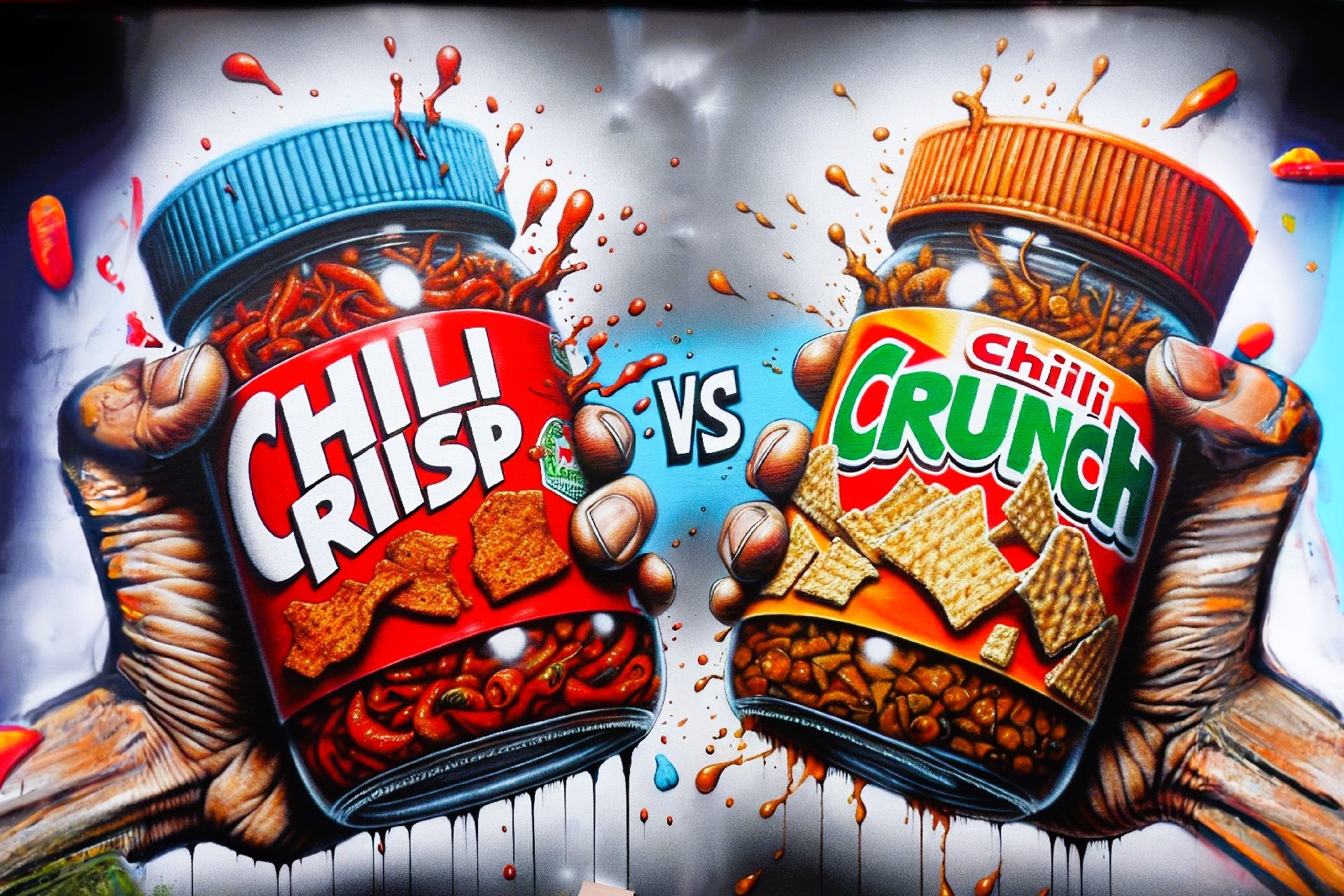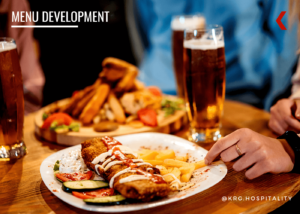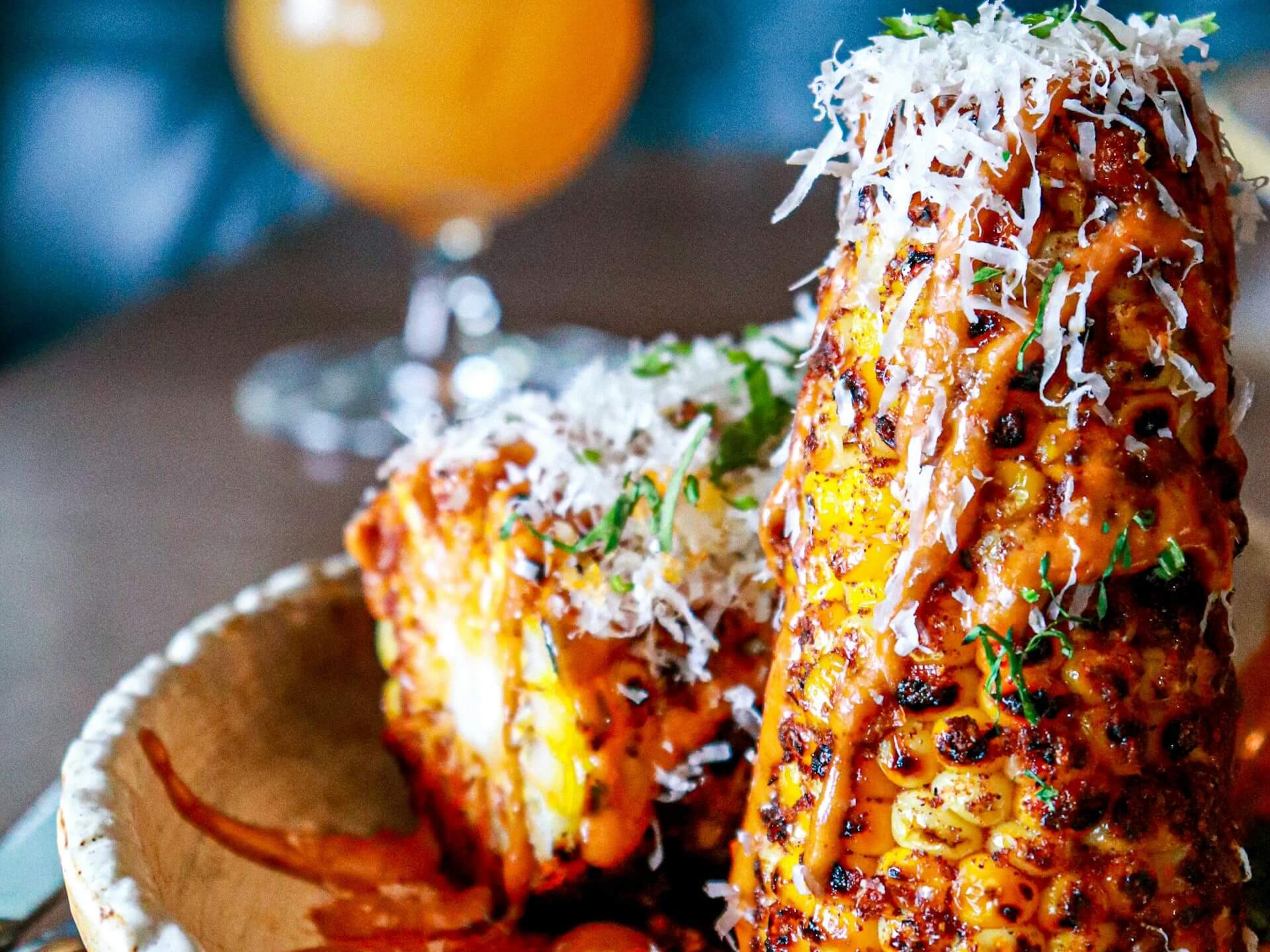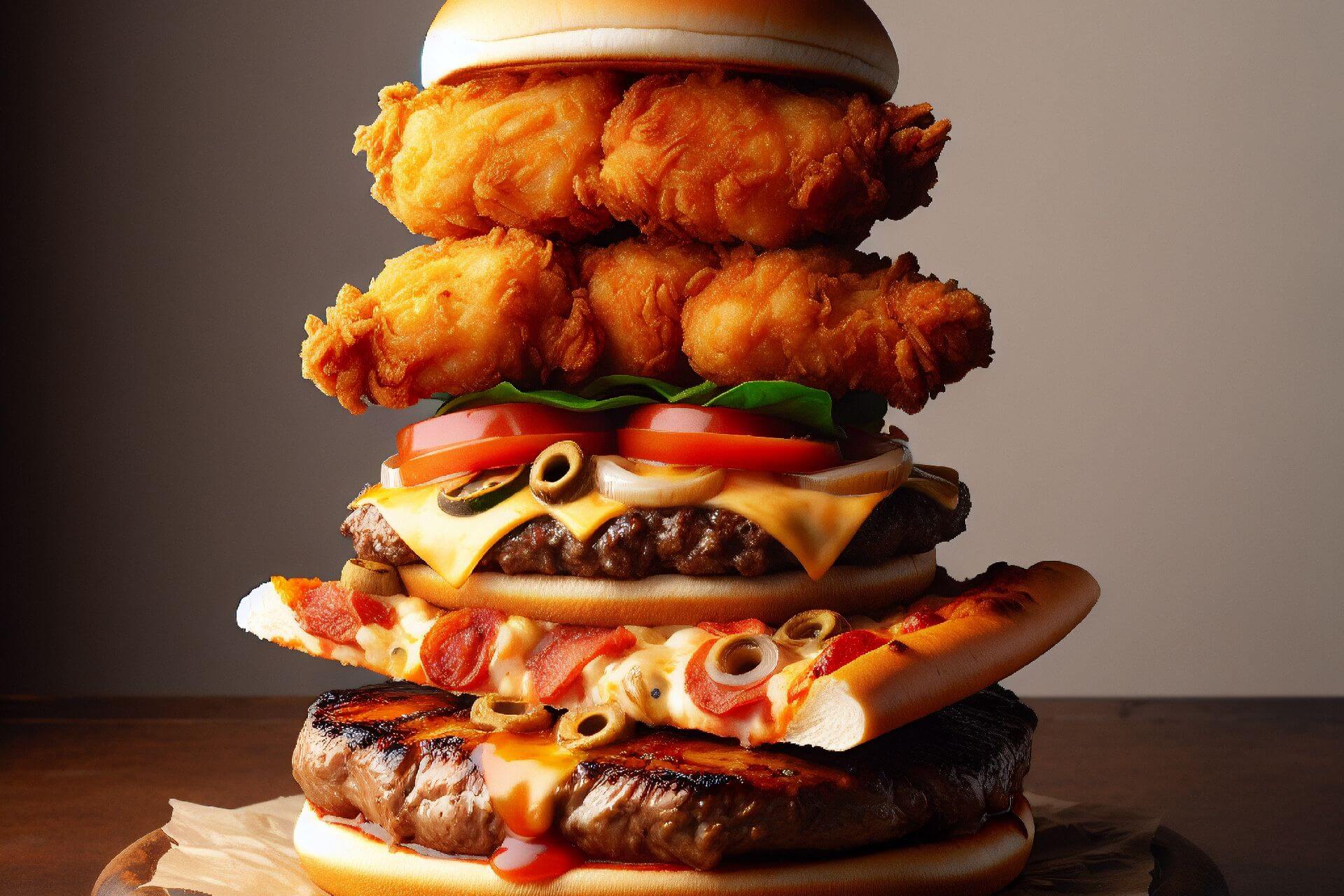Cheers to the 2024 James Beard Foundation Nominees
by David Klemt

One of these days, AI platforms are going to learn to spell, and then we’re all in trouble.
If there’s any question as to whether we’re in F&B and hospitality award season, we can safely say that the answer is an emphatic “yes.”
Our look at the 2024 Bar & Restaurant Expo award winners is here. This year’s TAG Global Spirits Awards have been revealed. And, of course, we eagerly anticipate the 2024 North America’s 50 Best Bars ceremony (along with the rest of the World’s 50 Best announcements). There are also the 2024 Spirited Awards this July.
On June 10, winners of the 2024 James Beard Awards will be revealed. Below, you’ll find the nominees spanning 22 awards categories. Additionally, you’ll find the honorees of a number of awards, including Lifetime Achievement and Humanitarian of the Year.
Interestingly, the specific chefs awards are split into a dozen categories, by region: California, Great Lakes, Mid-Atlantic, Midwest, Mountain, New York State, Northeast, Northwest and Pacific, Southeast, South, Southwest, and Texas.
This is how I learned that I in fact grew up in the Great Lakes area and not, apparently, the Midwest as I’ve believed for decades. Reality, shattered.
As far as the Outstanding Bar award goes, these are the nominees:
- Barr Hill Cocktail Bar, Montpelier, VT
- Clavel Mezcaleria, Baltimore, MD
- Jewel of the South, New Orleans, LA
- Las Ramblas, Brownsville, TX
- Pacific Cocktail Haven, San Francisco, CA
The nominees for Best New Restaurant are:
- Bar Bacetto, Waitsburg, WA
- Barbs-B-Q, Lockhart, TX
- Chez Noir, Carmel-by-the-Sea, CA
- Comfort Kitchen, Dorchester, MA
- Dakar NOLA, New Orleans, LA
- Hayward, McMinnville, OR
- Kaya, Orlando, FL
- Kisser, Nashville, TN
- Oro by Nixta, Minneapolis, MN
- Shan, Bozeman, MT
Cheers to this year’s honorees and nominees!
JAMES BEARD FOUNDATION® ANNOUNCES THE 2024 RESTAURANT AND CHEF AWARDS NOMINEES AND LEADERSHIP AWARDS, HUMANITARIAN OF THE YEAR, AND LIFETIME ACHIEVEMENT AWARD HONOREES
NEW YORK (APRIL 3, 2024) – The James Beard Foundation® announced today its 2024 Lifetime Achievement, Humanitarian of the Year, and Leadership Awards honorees, and Restaurant and Chef Awards nominees in advance of the James Beard Awards® ceremonies presented by Capital One. The full list of honorees and nominees can be found below and on the James Beard Foundation website.
The honorees and nominees were announced today during a live ceremony at Waldorf Astoria Washington DC, co-hosted by Clare Reichenbach, Chief Executive Officer, James Beard Foundation; Rich Gamble, Interim President & CEO, Choose Chicago; Kris Moon, President and Chief Operating Officer, James Beard Foundation; Dawn Padmore, Vice President of Awards, James Beard Foundation; Nina Albert, Deputy Mayor for Planning and Economic Development (DMPED); Adam Crocini, SVP and Global Head of Food & Beverage Brands, Hilton; and Monica Weaver, Head of Branded Card Partnerships and Experiences, Capital One. At the ceremony, Reichenbach made opening remarks highlighting how the Foundation is excited to celebrate outstanding achievement, while continuing to build on its mission of “Good Food for Good®” in support of the independent restaurant industry and broader food culture.
“Congratulations to all of our esteemed honorees and nominees on this remarkable achievement,” said Clare Reichenbach, CEO, James Beard Foundation. “Your vision, and continued dedication to excellence—both on and beyond the plate—make you true leaders of American culinary. Thank you for all you are doing to set a better standard for our industry and broader food system.”
“Despite so many ongoing challenges, this list is a positive reminder of the exceptional talent and dynamism of our industry—it gives me hope for the future of independent restaurants,” said Tanya
Holland, Chair of the James Beard Awards Committee and member of the James Beard Foundation Board of Trustees. “As Awards Committee Chair, I am honored to congratulate each of you
and look forward to celebrating together in Chicago this June.”
“It’s been wonderful to hear how Awards recognition has already benefited restaurants and businesses around the country. We look forward to continuing to use the Awards platform to highlight their impressive accomplishments and work in our industry.” said Dawn Padmore, VP of Awards, James Beard Foundation. “Thank you to our committee members and judges for their work, and congratulations to all honorees and nominees.”
The James Beard Awards, among the nation’s most prestigious honors in the culinary and food media industries, recognize exceptional talent as well as a demonstrated commitment to racial and gender equity, community, sustainability, and a culture where all can thrive. James Beard Awards policies and procedures can be viewed at jamesbeard.org/awards/policies.
Achievement Awards
The James Beard Awards comprise three Achievement Awards: Leadership Awards, which awards five candidates and has a dedicated subcommittee and voting body, as well as the Lifetime Achievement and Humanitarian of the Year Awards, both of which are administered by the Awards Committee.
Leadership Awards
The Leadership Awards program recognizes achievement by individuals and/or organizations who are actively working to set standards that create more equitable, just, sustainable, and economically viable food systems for producers, workers, and consumers alike.
The 2024 Leadership Awards categories were created by the James Beard Foundation, with input from the Leadership Subcommittee, as a reflection of the Foundation’s policy agenda and its impact priorities for 2023-2024.
The Leadership Awards honorees will be celebrated at an invite-only ceremony in Chicago on Sunday, June 9 and recognized on stage at the Restaurant and Chef Awards ceremony on Monday, June 10 at the Lyric Opera of Chicago.
“In recognizing the myriad challenges of the independent restaurant industry and our broader food landscape, the James Beard Leadership Awards honorees stand as a beacon and inspiration for all of us who are committed to a more equitable and sustainable future,” said Lakisha May, Chair of the Leadership Awards Subcommittee. “We are proud to recognize the diligent efforts and dedication of this year’s honorees.”
The 2024 Leadership Awards honorees are:
Sustainability
Leaders who are advancing environmental sustainability in support of a better supply chain for restaurants. Their efforts may focus on healthy soil, clean oceans, sustainable fisheries, reducing food
waste, or regenerative agriculture.
- Mai Nguyen, Farmer, Farmer Mai: Mai Nguyen is a first-generation Vietnamese-American farmer who began their career as a research assistant studying the effects of carbon on the atmosphere and soil. Wanting to make more of an impact, they focused their efforts on disaster relief and water sanitation projects for refugee camps in Southeast Asia, which opened their eyes to the broader implications of food security and sustainability. The child of Vietnamese refugees, Nguyen returned to their roots in California to support the diaspora community and advocate for equitable ecological food systems through environmentally beneficial farming practices. Nguyen specializes in site-appropriate and soil-enriching approaches to growing organic heirloom grains and Southeast Asian crops in Upper Lake, California. Through their leadership as co-director of Minnow, which works to secure land tenure for California’s farmers of color and Indigenous communities, Nguyen helps facilitate democratic organization for land justice. In 2017, in response to systemic discrimination faced by farmers of color, Nguyen helped pass the Farmer Equity Act in California, which acknowledges socially disadvantaged producers within the agricultural system and has created policies to advance equity.
Policy Advocacy
Policymakers or advocates who are advancing a Farm Bill and/or federal legislation or regulations that prioritize climate change mitigation, racial and gender equity, or industry practices that foster a more sustainable and equitable restaurant industry.
- Niaz Dorry, Coordinating Director, North American Marine Alliance (NAMA): Niaz Dorry has played a pivotal role in steering federal legislation towards recognizing and supporting small-scale, traditional, and Indigenous fishing communities through her leadership in the North American Marine Alliance (NAMA) and collaboration with the National Family Farm Coalition. By advocating for policies that prioritize ecological sustainability and equity, she has helped to bridge the gap between land and sea food systems, emphasizing the importance of including seafood in comprehensive food system discussions. Her efforts to raise awareness about the critical role of small-scale, values-based fisheries in mitigating climate change and advancing gender and racial equity have inspired more sustainable practices within the restaurant industry. Dorry has been recognized as a “Hero for the Planet” by Time magazine.
Industry Culture and Practices
Leaders who have made a significant impact and are acknowledged and recognized as setting industry standards, with a commitment to transforming the industry into one that is sustainable and equitable. These leaders have put in place systems and policies that prioritize the physical and mental health of employees and themselves and have proven to make for a sound financial model for staff and owners alike that foster longevity in the restaurant industry. They are modeling how to make independent restaurants more equitable both within and beyond one’s own businesses.
- Muhammad Abdul-Hadi, Founder/Owner, Down North Pizza and Down North Foundation: Muhammad Abdul-Hadi is the founder of Down North Pizza, a mission-driven restaurant that
exclusively hires previously incarcerated employees. As an entrepreneur in property management, retail, and real estate development, Abdul-Hadi focuses on creating business models that offer both employment and housing to formerly incarcerated individuals. In 2015, Abdul-Hadi bought property in the Strawberry Mansion neighborhood—a predominantly Black and historically underserved area of Philadelphia marked by high recidivism rates. Abdul-Hadi’s aim was to use the property to offer subsidized housing to individuals negatively impacted by the criminal justice system but has expanded the building’s use with the opening of Down North Pizza. Abdul-Hadi’s philosophy of meeting people where they are—recognizing and valuing their
experiences and skills often overlooked in traditional hiring practices—has not only contributed to the success of Down North Pizza but has also set a precedent for future enterprises that seek to combine profit with purpose.
Food Security and Access
Leaders who have advanced nutrition security, an issue that has directly impacted many independent chefs and restaurants, most notably through SNAP and SNAP expansion, community engagement, and beyond.
- Helga Garcia-Garza, Executive Director, Agri-Cultura Network: Helga Garcia-Garza is the executive director of Agri-Cultura Network—a farmer-owned cooperative providing access to local and sustainably grown produce—and of their community supported agricultural program, La Cosecha CSA. For over 50 years, Garcia-Garza has been a driving force for food justice and a dedicated community organizer, working on both sides of the U.S./Mexico border. The daughter of an activist and a member of a marginalized Native Indigenous community, Garcia-Garza’s efforts are driven by her deep commitment to building an equitable and sustainable food system, empowering communities through education, and making healthy food accessible to low-income households. After spending 20 years as an organic farmer, Garcia-Garza now advocates for farmers’ rights on environmental contamination issues. Her work has enabled hundreds of families to access fresh, local produce using SNAP funds. Beyond SNAP expansion, her efforts in community engagement and education around sustainable agriculture practices have empowered both urban and rural farmers, contributing to a more resilient and nutrition-secure food system. Garcia-Garza is based in Albuquerque, New Mexico and is currently focused on building a multi-million dollar solar-powered “Eco-Wellness” clinic that aims to bridge the gap between sustainable agricultural practices and nutritional wellbeing.
Emerging Leadership
The Leadership Committee may select an additional honoree to highlight a person or collective who is at the beginning of their career but already doing significant work.
- Christa Barfield, Founder and Chief Executive Officer, FarmerJawn: Christa Barfield is the founder and chief executive officer of FarmerJawn—a 128-acre working farm providing access to regenerative organic food production through a community supported agriculture (CSA) program, storefronts, and educational programs—and Viva Leaf Tea Co., a farm-to-cup tea brand. Barfield’s initiatives are designed not just to provide organic foods in areas of food apartheid, but also to educate on the importance of sustainable agriculture and healthy eating through on-farm and in-school programming. Her latest venture, CornerJawn, is a redefined corner store experience that makes fresh produce more accessible to underserved communities. With CornerJawn, Barfield is nurturing a movement towards sustainable living and conscious eating for all. Barfield’s work is making a significant impact on Philadelphia’s food system and offering a model for urban food justice and entrepreneurship. Barfield is a Generation Change fellow, Philadelphia’s Community Wellness Leader, and is recognized as a “Food is Medicine” and nutrition security champion by the USDA.
Leadership Awards categories may vary annually. More information on the voting process for the Leadership Awards can be viewed here.
Lifetime Achievement Award
The Lifetime Achievement Award honors an individual whose life’s work has profoundly and enduringly influenced how America cooks, eats, and perceives food.
The 2024 Lifetime Achievement Award honoree is the inimitable writer, editor, novelist, and television personality Ruth Reichl. In 1971, at the age of 23, Reichl wrote her first cookbook, MMMMM: A Feastiary. This set her on a path to prominence as a “make or break” food critic for esteemed publications like the Los Angeles Times and the New York Times. In 1999, she took over as editor-in-chief of Gourmet magazine, commissioning pieces from legendary writers like David Foster Wallace. Reichl’s captivating memoirs offer an intimate glimpse into five decades of her culinary adventures. Her first memoir, Tender at the Bone, helped readers to understand “that food could be a way of making sense of the world.” Reichl’s appearances as a judge on Bravo TV’s Top Chef and Top Chef Masters endeared her to a new generation of food enthusiasts, reinforcing her reputation as a culinary and food media icon. Reichl’s impact on the food industry has been recognized with seven James Beard Awards and the Who’s Who of Food & Beverage in America award, cementing her legacy in the food world as a leading voice and trailblazer for women.
“I’m so thrilled by this honor,” said Reichl. “Looking back, I can’t help thinking how much the world has changed in my lifetime. When I started writing about food, Americans paid so little attention to what and how we eat that the very notion of honoring someone for a career like mine would have seemed absurd.” More information on the voting process for the Lifetime Achievement Award can be viewed here.
Humanitarian of the Year Award
The Humanitarian of the Year Award honors an individual or organization within the food industry who has demonstrated exceptional selflessness and unwavering dedication to improving the lives of others and society as a whole.
The 2024 Humanitarian of the Year Award honoree is The LEE Initiative, an organization that promotes diversity, equity, and empowerment for employees within the restaurant industry. Founded in 2017 by chef Edward Lee and Lindsey Ofcacek, The LEE Initiative—an acronym for Let’s Empower Employment—is responsible for creating programs that advance women, amplify Black voices, and explore sustainable policies for restaurants. Known for its relief work, The LEE Initiative has raised over $5 million in direct aid and investments for small farms, Black-owned food businesses, COVID-19 support, and more. In 2021, Ofcacek and chef Lee were honored with the Muhammad Ali Humanitarian Award for their work through The LEE Initiative.
“The Lee Initiative is honored to receive the JBF Humanitarian [of the Year] Award and we accept it on behalf of every single restaurant worker who has gone above and beyond to ensure that the best of our restaurant culture stays alive and relevant for the next generation,” said Ofcacek. “Our work is rooted in community, collaboration, and a common goal to create a kinder more equitable future for the hospitality industry. We are honored to work alongside you,” added Lee.
The Humanitarian of the Year and Lifetime Achievement Honorees will be recognized at the Restaurant and Chef Awards ceremony on Monday, June 10 at the Lyric Opera of Chicago. More information on the voting process for Lifetime Achievement and Humanitarian of the Year Awards can be viewed here.
Restaurant and Chef Awards Nominees
The James Beard Foundation’s Restaurant and Chef Awards—established in 1990 and first awarded in 1991—is one of five separate recognition programs of the Awards. This Awards program celebrates excellence across a range of experiences, from fine-dining establishments to casual gems, and emerging talents to established luminaries.
The 2024 Restaurant and Chef Awards nominees are recognized across 22 categories. Winners will be celebrated at the James Beard Restaurant and Chef Awards ceremony on Monday, June 10 at the Lyric Opera of Chicago.
“The Restaurant and Chef Awards Committee extends its heartfelt congratulations to the 2024 nominees—an exceptional list of culinary leaders and teams whose unique contributions greatly enrich
our industry and broader food culture,” said Restaurant and Chef Committee Co-Chairs, Lauren Saria and Allecia Vermillion.
The 2024 Restaurant and Chef Awards nominees are:
Outstanding Restaurateur:
A restaurateur who uses their establishment(s) as a vehicle for building community, demonstrates creativity in entrepreneurship, integrity in restaurant operations, and is making efforts to create a sustainable work culture, while contributing positively to their broader community.
- Mamba Hamissi and Nadia Nijimbere, Baobab Fare, Detroit, MI
- Quynh-Vy and Yenvy Pham, Phở Bắc Súp Shop, Phởcific Standard Time, and The Boat, Seattle, WA
- Chris Viaud, Greenleaf, Ansanm, and Pavilion, Milford and Wolfeboro, NH
- Hollis Wells Silverman, Eastern Point Collective (The Duck & The Peach, La Collina, The Wells, and others), Washington, D.C.
- Erika Whitaker and Kelly Whitaker, ID EST (The Wolf’s Tailor, BRUTØ, Basta, and others), Boulder, CO
Outstanding Chef presented by Hilton:
A chef who sets high culinary standards and has served as a positive example for other food professionals, while contributing positively to their broader community.
- Sarah Minnick, Lovely’s Fifty Fifty, Portland, OR
- Dean Neff, Seabird, Wilmington, NC
- Michael Rafidi, Albi, Washington, D.C.
- Renee Touponce, The Port of Call, Mystic, CT
- David Uygur, Lucia, Dallas, TX
Outstanding Restaurant presented by Acqua Panna® Natural Spring Water:
A restaurant that demonstrates consistent excellence in food, atmosphere, hospitality, and operations, while contributing positively to its broader community
- The Compound, Santa Fe, NM
- Convenience West, Marfa, TX
- Langbaan, Portland, OR
- Mixtli, San Antonio, TX
- Vestige, Ocean Springs, MS
Emerging Chef presented by S.Pellegrino® Sparkling Natural Mineral Water:
A chef who displays exceptional talent, character, and leadership ability, and who is likely to make a significant impact in years to come, while contributing positively to their broader community.
- Fariyal Abdullahi, Hav & Mar, New York, NY
- Janet Becerra, Pancita, Seattle, WA
- Nikko Cagalanan, Kultura, Charleston, SC
- Ryan Fernandez, Southern Junction, Buffalo, NY
- Masako Morishita, Perry’s, Washington, D.C.
Best New Restaurant:
A restaurant opened between October 1, 2022, through September 30, 2023, that already demonstrates excellence in cuisine, seems likely to make a significant impact in years to come, and demonstrates consistent excellence in food, atmosphere, hospitality, and operations, while contributing positively to its broader community.
- Bar Bacetto, Waitsburg, WA
- Barbs-B-Q, Lockhart, TX
- Chez Noir, Carmel-by-the-Sea, CA
- Comfort Kitchen, Dorchester, MA
- Dakar NOLA, New Orleans, LA
- Hayward, McMinnville, OR
- Kaya, Orlando, FL
- Kisser, Nashville, TN
- Oro by Nixta, Minneapolis, MN
- Shan, Bozeman, MT
Outstanding Bakery:
A baker of breads, pastries, or desserts that demonstrates consistent excellence in food, atmosphere, hospitality, and operations while contributing positively to its broader community.
- The Burque Bakehouse, Albuquerque, NM
- Gusto Bread, Long Beach, CA
- JinJu Patisserie, Portland, OR
- Mel the Bakery, Hudson, NY
- ZU Bakery, Portland, ME
Outstanding Pastry Chef or Baker:
A pastry chef or baker who makes desserts, pastries, or breads. Candidate demonstrates exceptional skills and can be affiliated with any food business and does not need a brick-and-mortar presence. Candidates contribute positively to their broader community.
- Susan Bae, Moon Rabbit, Washington, D.C.
- Jesus Brazon and Manuel Brazon, Caracas Bakery, Doral and Miami, FL
- Atsuko Fujimoto, Norimoto Bakery, Portland, ME
- Crystal Kass, Valentine, Phoenix, AZ
- Anna Posey, Elske, Chicago, I
Outstanding Hospitality presented by American Airlines:
A restaurant, bar or other food and drinking establishment that fosters a sense of hospitality among its customers and staff that serves as a beacon for the community and demonstrates consistent excellence in food, atmosphere, hospitality, and operations while contributing positively to its broader community.
- Crawford and Son, Raleigh, NC
- Gemma, Dallas, TX
- Lula Cafe, Chicago, IL
- Melba’s, New York, NY
- Woodford Food & Beverage, Portland, ME
Outstanding Wine and Other Beverages Program:
This Award is presented to a restaurant that demonstrates exceptional care and skill in the pairing of wine and other beverages with food while contributing positively to its broader community. This includes the selection, preparation, and serving of wine, cocktails, spirits, coffee, tea, beer or any other beverage with outstanding hospitality and service that help inform and enhance a customer’s appreciation of the beverage(s). Ethical sourcing and positive contributions to the broader community will also be considered.
- Lula Drake Wine Parlour, Columbia, SC
- The Morris, San Francisco, CA
- Strong Water Anaheim, Anaheim, CA
- Tail Up Goat, Washington, D.C.
- Waxlight Bar à Vin, Buffalo, NY
Outstanding Bar:
This award is presented to a wine bar, beer bar, cocktail bar, coffee bar, or any other business whose primary offering is beverage and that demonstrates consistent excellence in curating a selection or in the preparation of drinks, along with outstanding atmosphere, hospitality, and operations while contributing positively to its broader community.
- Barr Hill Cocktail Bar, Montpelier, VT
- Clavel Mezcaleria, Baltimore, MD
- Jewel of the South, New Orleans, LA
- Las Ramblas, Brownsville, TX
- Pacific Cocktail Haven, San Francisco, CA
Best Chefs presented by Capital One (by region):
Chefs who set high standards in their culinary skills and leadership abilities, and who are making efforts to help create a sustainable work culture in their respective regions while contributing positively to their broader community.
Best Chef: California
- Geoff Davis, Burdell, Oakland, CA
- Rogelio Garcia, Auro, Calistoga, CA
- Lord Maynard Llera, Kuya Lord, Los Angeles, CA
- Tara Monsod, Animae, San Diego, CA
- Buu “Billy” Ngo, Kru, Sacramento, CA
Best Chef: Great Lakes (IL, IN, MI, OH)
- Vinnie Cimino, Cordelia, Cleveland, OH
- Jose Salazar, Mita’s, Cincinnati, OH
- Sujan Sarkar, Indienne, Chicago, IL
- Hajime Sato, Sozai, Clawson, MI
- Jenner Tomaska, Esmé, Chicago, IL
Best Chef: Mid-Atlantic (DC, DE, MD, NJ, PA, VA)
- Tony Conte, Inferno Pizzeria Napoletana, Darnestown, MD
- Jesse Ito, Royal Sushi & Izakaya, Philadelphia, PA
- Matt Kern, One Coastal, Fenwick Island, DE
- Harley Peet, Bas Rouge, Easton, MD
- Kevin Tien, Moon Rabbit, Washington, D.C.
Best Chef: Midwest (IA, KS, MN, MO, NE, ND, SD, WI)
- Ann Ahmed, Khâluna, Minneapolis, MN
- Rob Connoley, Bulrush, St. Louis, MO
- Dan Jacobs and Dan Van Rite, EsterEv, Milwaukee, WI
- Christina Nguyen, Hai Hai, Minneapolis, MN
- Tim Nicholson, The Boiler Room, Omaha, NE
Best Chef: Mountain (CO, ID, MT, UT, WY)
- Brandon Cunningham, Social Haus, Greenough, MT
- Ali Sabbah, Mazza Cafe, Salt Lake City, UT
- Matt Vawter, Rootstalk, Breckenridge, CO
- Penelope Wong, Yuan Wonton, Denver, CO
- Nick Zocco, Urban Hill, Salt Lake City, UT
Best Chef: New York State
- Nasim Alikhani, Sofreh, Brooklyn, NY
- Atsushi Kono, Kono, New York, NY
- Chris Mauricio, Harana Market, Accord, NY
- Charlie Mitchell, Clover Hill, Brooklyn, NY
- Jeremy Salamon, Agi’s Counter, Brooklyn, NY
Best Chef: Northeast (CT, MA, ME, NH, RI, VT)
- Conor Dennehy, Talulla, Cambridge, MA
- Maria Meza, Dolores, Providence, RI
- David Standridge, The Shipwright’s Daughter, Mystic, CT
- Jake Stevens, Leeward, Portland, ME
- Cara Tobin, Honey Road, Burlington, VT
Best Chef: Northwest and Pacific (AK, HI, OR, WA)
- Avery Adams, Matia Kitchen, Orcas Island, WA
- Kristi Brown, Communion, Seattle, WA
- Josh Dorcak, MÄS, Ashland, OR
- Gregory Gourdet, kann, Portland, OR
- Melissa Miranda, Musang, Seattle, WA
Best Chef: Southeast (GA, KY, NC, SC, TN, WV)
- Jamie Davis, The Hackney, Washington, NC
- Rod Lassiter and Parnass Savang, Talat Market, Atlanta, GA
- James London, Chubby Fish, Charleston, SC
- Robbie Robinson, City Limits Barbeque, West Columbia, SC
- Paul Smith, 1010 Bridge, Charleston, WV
Best Chef: South (AL, AR, FL, LA, MS, PR)
- Valerie Chang, Maty’s, Miami, FL
- Hunter Evans, Elvie’s, Jackson, MS
- Gabriel Hernandez, Verde Mesa, San Juan, PR
- Carlos Portela, Orujo, San Juan, PR
- Arvinder Vilkhu, Saffron, New Orleans, LA
Best Chef: Southwest (AZ, NM, NV, OK)
- Rene Andrade, Bacanora, Phoenix, AZ
- Jeff Chanchaleune, Ma Der Lao Kitchen, Oklahoma City, OK
- Steve Kestler, Aroma Latin American Cocina, Henderson, NV
- Steve Riley, Mesa Provisions, Albuquerque, NM
- Eduardo Rodriguez, Zacatlán, Santa Fe, NM
Best Chef: Texas
- Emmanuel Chavez, Tatemó, Houston, TX
- Christopher Cullum, Cullum’s Attaboy, San Antonio, TX
- Tracy Malechek-Ezekiel, Birdie’s, Austin, TX
- Misti Norris, Petra & the Beast, Dallas, TX
- Ana Liz Pulido, Ana Liz Taqueria, Mission, TX
*As of the 2023 Awards cycle, the Restaurant and Chef Awards defines the annual eligibility time frame as October through September (formerly January through December) to allow the voting body more time to consider businesses opening later in the calendar year.
More information on the voting process for the Restaurant and Chef Awards can be viewed here.
Upcoming Awards Announcements
- April 30, 2024: James Beard Media Awards nominees are announced
- The 2024 Awards ceremonies will be held in our proud host city of Chicago on the following dates:
- Saturday, June 8, 2024: Media Awards at Columbia College Chicago Student Center
- Sunday, June 9, 2024: Leadership Awards at The Dalcy
- Monday, June 10, 2024: Restaurant and Chef Awards at Lyric Opera of Chicago
Tickets for the 33rd annual James Beard Restaurant and Chef Awards in Chicago go on sale April 9 and can be purchased on the James Beard Foundation website. The Awards will be livestreamed Monday, June 10 on Eater.com.
“Our ongoing partnership with the James Beard Foundation is special in that not only does it allow us to provide our cardholders access to incredible culinary experiences, but it also gives us the chance to honor the best in the industry through the James Beard ceremonies,” said Monica Weaver, Head of Branded Card Partnerships and Experiences at Capital One. “It’s an extra special honor this year to welcome the nomination ceremony to our hometown in the Washington, D.C. area. We look forward to celebrating all of the nominees later this year and congratulate them on their contributions to the culinary industry.”
“Chicagoans know how special the restaurant scene is here, so it is an honor for the James Beard Foundation to continue to recognize that as well,” said Rich Gamble, Interim President and CEO,
Choose Chicago. “We look forward to hosting the James Beard Awards for another year in our great city with an impressive group of nominees, winners, and honorees.”
The 2024 James Beard Awards are presented by Capital One, the official credit card and banking partner of the James Beard Foundation. The James Beard Awards are proudly hosted by Choose Chicago and the Illinois Restaurant Association, and presented in association with Hilton, as well as with the following partners: Premier Sponsors: Acqua Panna® Natural Spring Water, American Airlines, the official airline of the James Beard Foundation, HEINZ, HMSHost, S.Pellegrino® Sparkling Natural Mineral Water, Stella Artois; Supporting Sponsors: HexClad Cookware, Skuna Bay Salmon; Reception Sponsors: Ecolab, Kendall College at National Louis University, Windstar Cruises, the official cruise line of the James Beard Foundation; Additional Support Sponsors: Cristaux, Paperchase, Plugrà® Premium European Style Butter, VerTerra Dinnerware. Intersport is the Official Broadcast Partner of the 2024 James Beard Awards.
For more information about the James Beard Awards, visit jamesbeard.org/awards. For up-to-the-minute news about the Awards, follow @beardfoundation on X (Twitter) and Instagram, and keep an eye out for posts using #JBFA
ABOUT THE JAMES BEARD AWARDS
The James Beard Awards recognizes exceptional talent and achievement in the culinary arts, hospitality, media, and broader food system, as well as a demonstrated commitment to racial and gender equity, community, sustainability, and a culture where all can thrive. Established in 1990, the James Beard Awards are among the nation’s most prestigious honors recognizing leaders in the culinary and food media industries. The Awards are overseen by the Awards Committee. Each Awards program (Books, Broadcast Media, Journalism, Leadership, and Restaurant and Chef) has its own subcommittee members who volunteer their time to oversee the policies, procedures, and selection of judges for their respective program. All James Beard Award winners receive a certificate and a medallion engraved with the James Beard Foundation Awards insignia. For more information, subscribe to the Awards digital newsletter.
ABOUT THE JAMES BEARD FOUNDATION
The James Beard Foundation (JBF) is a 501(c)3 nonprofit organization that celebrates and supports the people behind America’s food culture, while pushing for new standards in the restaurant industry to create a future where all have the opportunity to thrive. Established over 30 years ago, the Foundation has highlighted the centrality of food culture in our daily lives and is committed to supporting a resilient and flourishing industry that honors its diverse communities. By amplifying new voices, celebrating those leading the way, and supporting those on the path to do so, the Foundation is working to create a more equitable and sustainable future—what we call Good Food for Good®. JBF brings its mission to life through the annual Awards, industry and community-focused programs, advocacy, partnerships, and events across the country. For the first time in the Foundation’s history, exceptional culinary talent, industry leaders, and visitors from NYC and beyond can experience unforgettable dining and educational programming at Platform by JBF—inspiring food and beverage devotees for decades to come. Learn more at jamesbeard.org, sign up for our newsletter, and follow @beardfoundation on social media.
ABOUT CAPITAL ONE
At Capital One, we’re on a mission for our customers – bringing them best-in-class products, rewards, service, and experiences. Capital One is a diversified bank that offers products and services to
individuals, small businesses, and commercial clients. We use technology, innovation, and interaction to provide consumers with products and services to meet their needs. Through Capital One Dining and Capital One Entertainment, we provide our rewards cardholders with access to unforgettable experiences in the areas they’re passionate about, including dining, music, and sports. Learn more at capitalone.com/dining and capitalone.com/entertainment.
Image: Shutterstock. Disclaimer: This image was generated by an Artificial Intelligence (AI) system.
